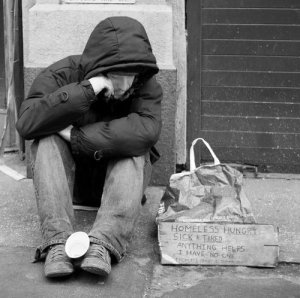 Today’s post is a guest post from Krístellys Zolondek, a young woman sold out and on fire for Christ!
Today’s post is a guest post from Krístellys Zolondek, a young woman sold out and on fire for Christ!
There is no questioning that Jesus came for the least, the lost, and the last in society. Transport yourself in time to first-century Palestine and you will quickly find that lepers, tax-collectors, blind men and women, and the poor were not only the most vulnerable and abused in society, but they were the most excluded members of society. Many would not be allowed to participate in worship in the Temple, the very place God dwelled, and should a person such as the tax-collector of Luke 18 find himself praying in the Temple, he (or she, although women didn’t occupy this role) would find himself being the example of what one ought not to be; they would be looked down upon and made to feel inferior. Many of these same people would not have an opportunity to, nor would ever be invited to, engage in worship or table fellowship centered upon God. They were excluded from God, community, and experiences.
One of Jesus’ most important tasks in his mission was to bring these least, lost, and last out of their exclusion and restore them as the true people of Israel, that is, God’s true people. He cleanses a leper and immediately sends him to the Temple (Mark 1.40-45). Jesus vindicates a blind man in John 9. One of the hallmarks of Jesus’ ministry is his fellowship with sinners of all kinds who were ostracized. Gerd Theissen, known for his research on sociological aspects of Jesus’ ministry, states that Jesus’ “concern for those who were discounted by Jewish society, his friendship with ‘toll-collectors and sinners’” was a distinctive trait of his ministry. He further explains that when “Jesus enters the house of a toll collector and eats with notorious sinners (Mark 2.15), or quite publicly tolerates bodily contact with a prostitute known throughout the city (Luke 7.37-39), this amounts to including in the community of neighbors these people who have been excluded.”
What Jesus does, essentially, is allow people to reconnect with God (through worship, prayer, etc.), restore them to their community, and allow them to experience God and fellowship with their brothers and sisters within that community. Since we know Jesus not only came for the least, the lost, and the last, but is literally with them and in them (Matt. 25.31-46), then the question we must pose to ourselves is, Are we, today, excluding Jesus? Are we excluding him from our Churches, from our worship experiences, from our fellowship, from our community? Sadly, we may be doing just this, albeit unintentionally.
When a homeless man is told to by a church to make an appointment, when a homeless man is afraid to enter a church because his experiences in church and with Christians has left him with shame, when poor kids, particularly Black and Latino/a kids, are left out of worship concerts and passionate events, when churches and youth groups spend more time and money planning trips than caring for the outcasts, it is Jesus being told to come back for an appointment, being shamed, left out of worship, being neglected by church and youth groups, even if unintentionally. What we do to these people, we are literally doing to Jesus himself.
This is not to say we cannot have these sorts of events on occasion. In the end, many of these events, while initially excluding the poor and outcast, wind up providing for these very people. However, the majority of our churches’ time, money, and energy must be spent as Jesus commands. It must be spent on bringing the excluded back into our, and their, worship, community, and experiences. We must offer and actively go out and bring the homeless to our churches for worship and table fellowship. We must put on concerts and events for our poor communities, or at the very least raise money and pay for the poor to go to such events. Our youth groups must stop planning fun getaways and start visiting soup kitchens, orphanages, hospitals, and homes for the elderly. When we do this, we are doing it to Jesus, when we don’t, and we devout our time and money elsewhere, we are likewise neglecting Jesus himself.
In the end, we must ask what our churches are known for and marked by. Is it big concert like worship services? Is it fun youth groups? Is it big buildings and feel-good sermons? Is it the Starbucks coffee and pastries given out to its members? Or are our churches marked by caring for the least, the lost, and the last? Are we caring for or excluding Jesus?